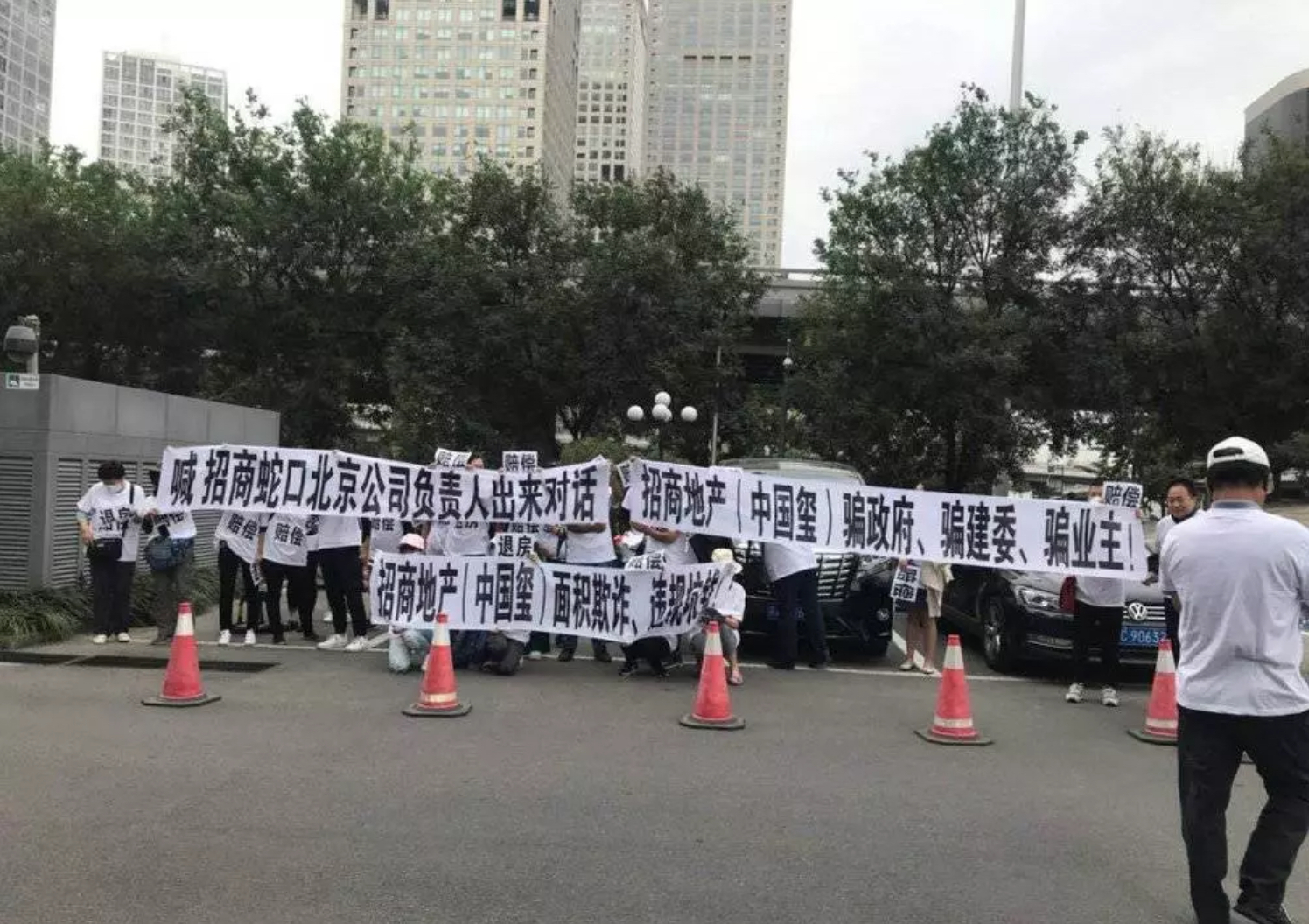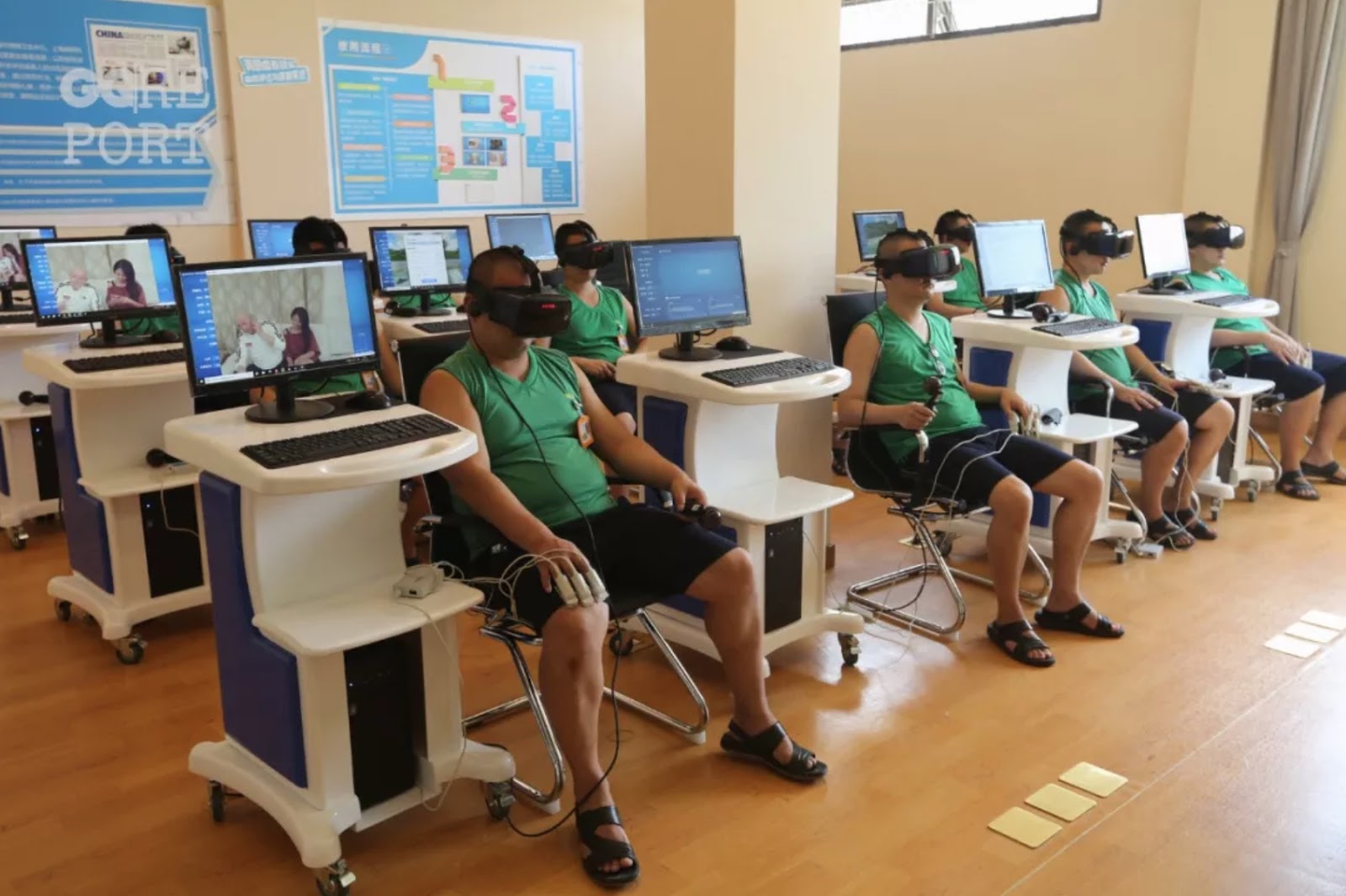Chinese Corner: China’s housing problems are just history repeating itself
Chinese Corner: China’s housing problems are just history repeating itself

China’s housing problems are just history repeating itself
限购两年记
A tale of two years of property purchase restrictions
By 兽爷 shòuyé
October 17, 2018
Every once in a while, real estate developers in China are bombarded by angry buyers. In a recent case, during the past Golden Week holiday, a group of property owners staged a protest in a Nanjing hotel, where a developer was promoting apartments despite accusations of false advertising and overcharging buyers for low-quality furnishings.
The presence of outraged buyers, however, did little to deter fervent customers from throwing down their checks. At the event, the developer resorted to a lottery as buyers far exceeded the number of units on sale. Lǐ Liàng 李亮, one of the lucky ones who won the lottery, said that he had no issues with the developer’s deceptive marketing as long as the price was ideal.
“The current Chinese housing market is a fortress besieged by profit seekers,” Sūn Chūnfāng 孙春芳 wrote. “Homeowners want refunds, and those who haven’t purchased houses are dying to enter the market.”
But in the eyes of Shòu Yé 兽爷, a former business journalist at the Southern Weekly, none of this is new and the phenomenon is just history repeating itself. “In 2016, when I walked into a sales office, I saw people buying houses worth millions like cabbages. The turning point came on July 31, 2018. When the Central Politburo of the Communist Party of China ordered local governments to firmly curb the rise of housing prices, the climate changed immediately,” he wrote. “Yes. This is a pattern. This is destiny.”

Using virtual reality to treat drug addiction
我去戒毒所体验了VR戒毒
I went to a rehab center to experience VR therapy treating drug addiction
By 李颖迪 lǐyǐngdí
October 15, 2018
“Are you craving drugs? Are you anxious? Are you depressed? Are you excited? Are you happy? Are you calm? Are you upset? Are you triggered?” A group of recovering drug addicts in a rehab center in Shanghai are questioned while wearing virtual reality headsets that show footage of people indulging in drug use and horrifying pictures of how terrible drug addicts look.
In rehab facilities across China, VR therapy is taking off as an effective tool to treat addiction. In a virtual world, people combating drug addiction are exposed to various scenarios designed to set off stressors and triggers.

Teaching boys to be boys
消灭“娘娘腔”争议 | 一家俱乐部的男孩“拯救”试验
A debate about eliminating “sissy men” | A club’s experiment to “save” boys
By 王丹妮
October 11, 2018
To capitalize on China’s masculinity crisis, a wave of clubs teaching boys to be manly have emerged. For Táng Hǎiyán 唐海岩, founder of the Boy’s True Color institution in Beijing, boys who are timid, sensitive, and physically weak are problem children in need of “gender education.” As part of a two-week training program, boys sent to the club are forced to engage in wrestling, which, according to Tang, is an effective method to eliminate elements of femininity in them.
In a visit to the club, reporter Wáng Dānnī 王丹妮 saw children crying and hiding and teachers using violent methods to make them behave. Since its establishment in 2012, the club has “trained” more than 20,000 children aged 5 to 12. Some of them left the program after a few training sessions, but some of them participated for several years. “Those who stayed opted to be obedient. They are gradually transformed by their parents and trainers to become what they want them to be,” Wang wrote.

China learns to manage pain
“忍痛”的中国人:止痛药“去污名化”的边界在哪
Chinese people suffer from pain: What’s the boundary of breaking the stigma of opioid use?
By 马肃平
October 14, 2018
While the U.S. is grappling with an ongoing opioid addiction epidemic, driven mostly by the nation’s escalating use of prescription painkillers, the vast majority of patients in China are new to the idea of pain management. A 2016 report released by the Chinese Anti-Cancer Association reveals that 67 percent of Chinese cancer patients have suffered from extreme pain conditions, yet only 12 percent of them have received proper treatment to relieve pain. The strong resistance to pain-reducing drugs is due to a widespread fear of opioid addiction, combined with traumatic historical memories of the Opium Wars in the mid-19th century, and a deeply rooted idea in Chinese culture that pain is nothing more than a physical discomfort that can be minimized with pure mental strength and endurance.
But in recent years, there has been a concerted effort among Chinese doctors to promote the use of painkillers, which many believe are beneficial for suffering patients when used properly. Meanwhile, an opioid crisis is looming as foreign pharmaceutical companies have set their sights on the Chinese market and launched aggressive marketing that often downplays the risks of opioid addiction.
Below are some other articles that piqued my interest this week:
- 为什么中国仍是乙肝大国 Why China has so many hepatitis B carriers.
- 我在论文“造假”工厂打工:代写、包发,年产值10亿 A former academic ghostwriter on how she helped college students cheat and the industry of on-demand papers.
- 小S 被分成两半的女人 Dee Hsu, commonly known by her stage name, Little S, is one of the most famous and accomplished television hosts from Taiwan. In this profile, she reveals herself to be self-conscious, reserved, and simple, an image in stark contrast to her provocative, sometimes unhinged, style on television.
- 收视率造假链:受害人也常是受益者Speaking on the phenomenon of fabricating ratings, a veteran TV producer told the Southern Weekly, “Everyone in this chain of fake ratings is both a victim and a beneficiary. No one has the courage to come forward as an accuser.”
- 中国人为什么热爱晒被子 Why Chinese people love hanging blankets in the sun.
- 京城高端礼仪班上的名媛梦 The middle class in China is paying to learn good manners. “Many Chinese people won’t admit it, but they actually yearn for nobles, royals, and the like,” a French businessman teaching etiquette classes in Beijing said, adding that he noticed a lot of Chinese companies like to use words like royal and noble in their campaigns. “It’s probably because they want to live elegantly like those from royal families.”






